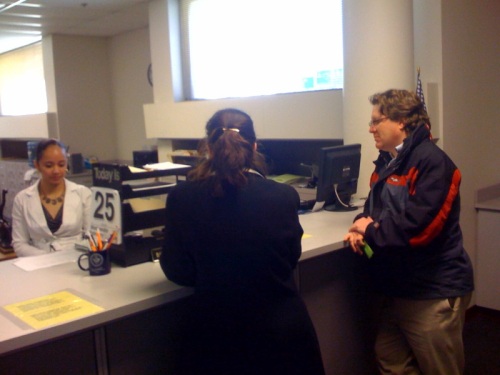Trenton residents filed a protest petition that seeks to block the pending $80 million sale of Trenton Water Works infrastructure in the outlying suburbs with the city clerk on Wednesday.
The petitions, which carried the signatures of nearly 1400 Trenton voters, now face scrutiny from City Clerk Juanita Joyner.
She will be responsible for certifying whether the petition sheets carry the 1170 valid signatures or more necessary to suspend the sale ordinance, and give it back to City Council for further deliberations.
If the ordinance carries once again at council, it would be put to a referendum, in which voters will decide whether an $80 million cash infusion that will be spent within two years is worth the sale of a revenue-generating asset.
If the clerk decides the petition does not contain enough valid signatures, the petitioners will have an additional 10 days to gather sufficient signatures to suspend the effort, according to local attorneys.

Residents file protest petition in the City Clerk's office Tuesday.
Petitioners, led by Trenton Council of Civic Associations President Mike McGrath, mounted a concerted effort in the final days before today’s deadline.
They did so in the face of a citywide public relations campaign that threatened residents with 1000-percent tax increases and other privations in the event of a successful petition, which some residents saw as fear mongering by Mayor Douglas H. Palmer.
The campaign saw the city post additional materials on its Web site Wednesday night, as Mayor Palmer had his communications team working overdrive to defeat a group he called “McGrath and his co-conspirators” in both The Times and The Trentonian on Thursday.
The city materials labeled the petition as reckless and irresponsible while again threatening all property owners with massive tax increases, in excess of what is legally permissible under New Jersey’s tax cap law.
